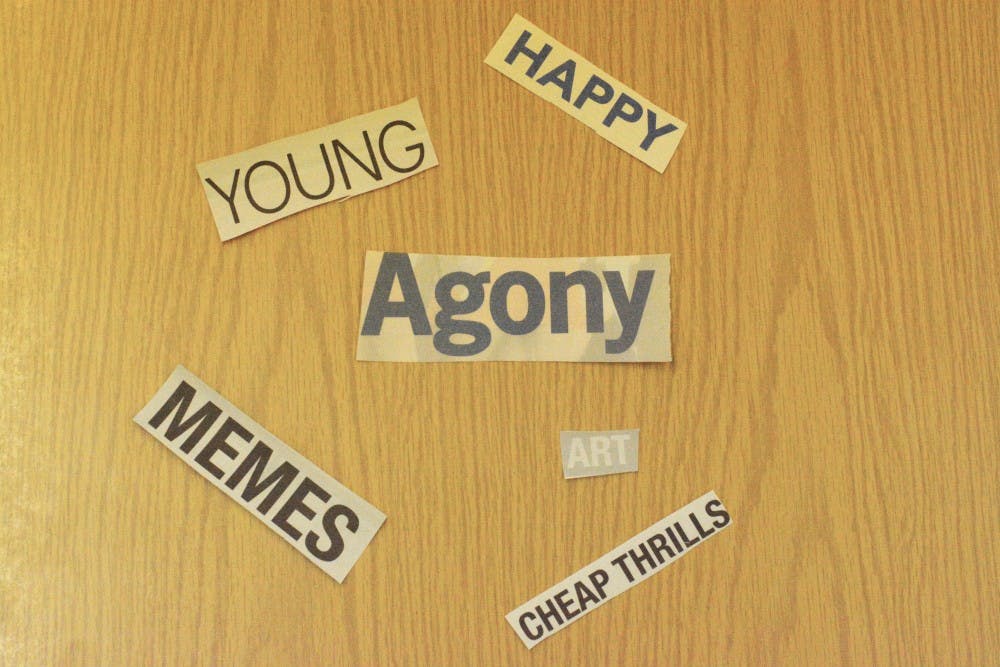Only six words to tell a story — that's all Penn Monologues asked for.
When the group, known for its annual production held in the spring semester, challenged Penn students to submit their super short stories, more than a hundred people responded.
Winning entries, which were announced Tuesday, included lines such as “Crying under the table in Chipotle” by College senior Peter LaBerge and “Singing ABBA while cleaning the toilet” by College junior Amy Stidham. Another winning entry was “Burn bridges? Nah. I burn pedestals,” by College senior Tshay Williams.
Some of these monologues will be recited by the group at the Speakeasy open mic night being held at the Kelly Writers House from 7:30 to 9 p.m. on Wednesday night. The event is also where the competition’s top six participants will receive their prize of a Moleskine notebook and a restaurant gift card.
College junior and producer of Penn Monologues Dalton Noakes said the group is also making plans for “a more visual representation” of the monologues. One possibility might be to collate them into a piece of artwork installed on Locust Walk, he said.
While Noakes said that the precise cap of six words was rather arbitrarily decided, the word count was kept deliberately low to give everyone a chance to tell their story.
“As a board, we recognize that students at Penn are extremely busy and under a lot of stress,” Noakes said. “Asking them to participate in a show or write out a multiple-page monologue may not be something they can do.”
Another goal of the short word limit was to break the perception that someone has to be a writer capable of long prose in order to tell their story, Noakes added. The group, which is based out of the Penn Women’s Center, wanted the competition to engage people from all walks of life, even those who do not usually think of themselves as storytellers.
RELATED:
Penn Monologues reveals breadth of student experiences
Vagina Monologues wants to incorporate Penn students' experiences
Noakes added that given the high levels of stress at Penn and the culture of putting on a “Penn Face,” his board felt that it was important to provide as many students as possible with an opportunity to “be honest with the parts of [their] day that [they] might otherwise not share.”
Many submissions shared a quality of vulnerability, he said. Common themes included familial relations, packed schedules and anxieties regarding post-college life. One example came from College sophomore Elana Burack who wrote: “Writing to-do lists on my body … ”
In inviting people to share their story, Penn Monologues hoped to bridge the gap between students feeling alone in their struggles. This competition, Noakes said, is just a starting point for a larger conversation that the group plans to facilitate.









